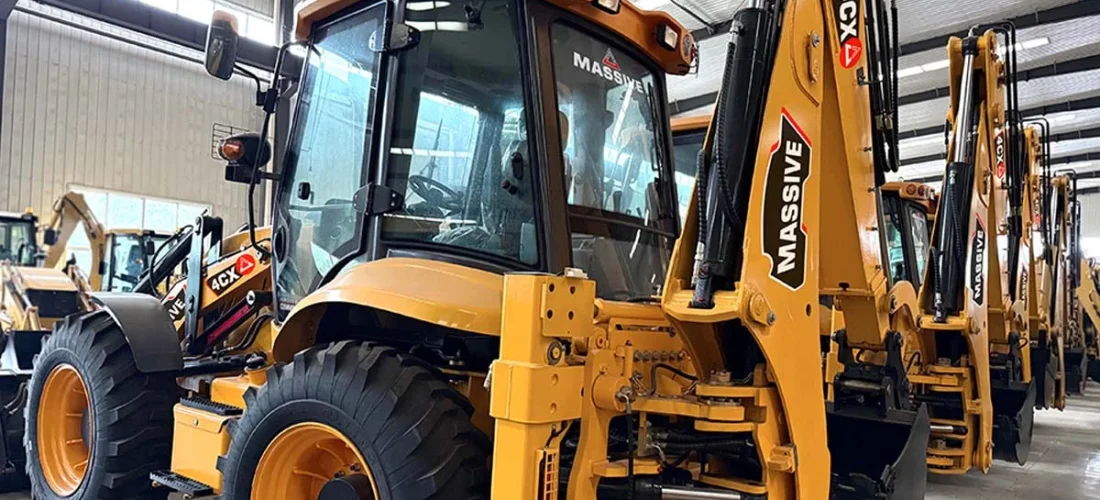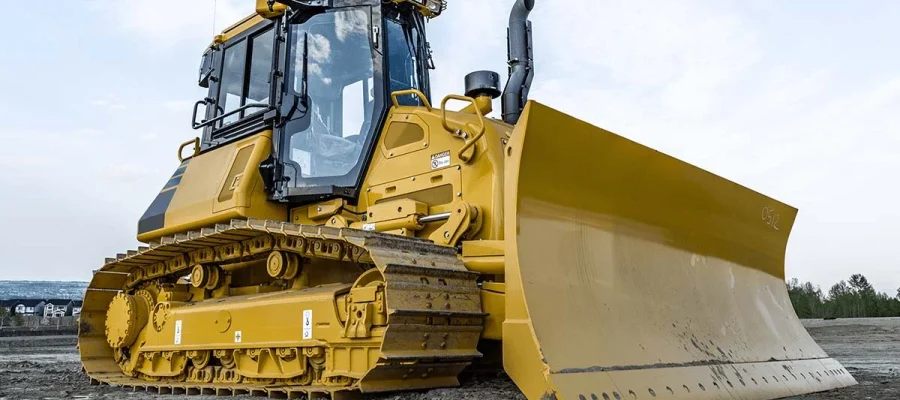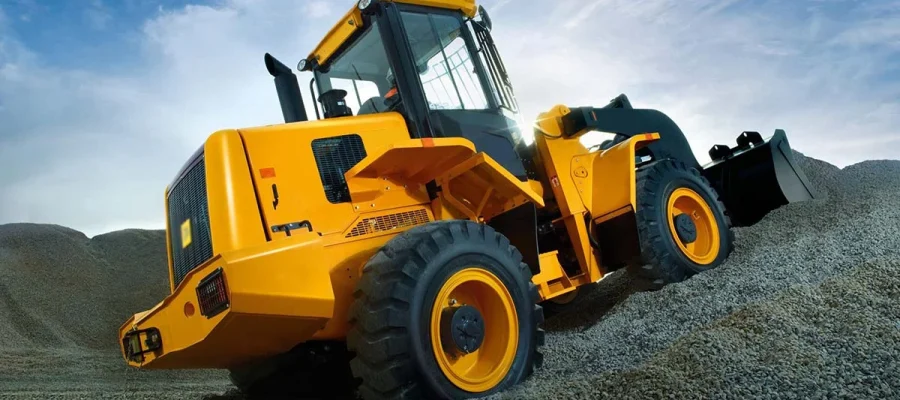
Guyana’s construction industry is booming, powering economic growth and transforming the nation’s landscape. Central to this progress is the use of powerful heavy machinery. From backhoe loaders shaping new housing developments to bulldozers clearing land for infrastructure projects, these machines are indispensable. However, their power demands the utmost respect and adherence to strict safety protocols.
Operating heavy equipment comes with inherent risks. Ensuring the well-being of operators and all personnel on a construction site is paramount. A strong safety culture not only prevents accidents and injuries but also enhances efficiency, reduces downtime, and protects valuable assets. This guide will walk you through the essential safety practices for operating construction machinery in Guyana, helping you maintain a secure and productive work environment.
The Importance of Pre-Operation Inspections
Before any engine starts, a thorough inspection is the first line of defence against mechanical failure. A daily walk-around check can identify potential issues before they escalate into serious hazards. This routine should be a non-negotiable part of every operator’s day.
Key Inspection Points:
- Tyres and Tracks: Check for proper inflation, visible damage like cuts or bulges, and excessive wear. For tracked machinery, inspect the track tension and look for any loose or damaged components.
- Fluid Levels: Verify the levels of engine oil, hydraulic fluid, coolant, and fuel. Leaks can indicate a serious problem and create slip hazards.
- Safety Features: Ensure all safety components are functional. This includes horns, backup alarms, lights, seat belts, and the fire extinguisher.
- Hydraulics: Inspect hoses and cylinders for any signs of leaks or damage. A hydraulic system failure can lead to a sudden loss of control.
- Attachments: Check that all attachments, such as the bucket on a backhoe loader, are securely fastened and in good working condition.
Documenting these checks is just as important as performing them. A daily logbook creates accountability and provides a maintenance record, which is invaluable for tracking the health of your heavy machinery for sale in Guyana.
Safe Operating Procedures on Site
Once the machinery is cleared for operation, safety remains a continuous priority. The operator’s skill, awareness, and adherence to established procedures are crucial for preventing accidents.
Maintain Situational Awareness
A construction site is a dynamic and often congested environment. Operators must be constantly aware of their surroundings. This includes:
- Identifying Blind Spots: Every piece of heavy machinery has blind spots. Operators should know where they are and take extra care when manoeuvring. Using spotters when visibility is limited is a critical safety measure.
- Monitoring Personnel: Always be aware of the location of other workers on the ground. Never assume they can see or hear you. Establish clear communication signals.
- Assessing Ground Conditions: Before moving or operating, assess the stability of the ground. Soft soil, steep slopes, or hidden voids can cause machinery to tip over.
Operate at a Safe Speed
Speed is a major factor in many construction accidents. Always operate machinery at a speed that is appropriate for the site conditions, visibility, and the specific task. Abrupt starts, stops, and turns can destabilise heavy equipment, especially when carrying a load.
Proper Use of Machinery
Using equipment for its intended purpose is fundamental to safety. For example, a backhoe loader should not be used as a crane to lift materials beyond its rated capacity. Overloading or misusing machinery can lead to catastrophic failure. Always refer to the manufacturer’s operating manual for guidelines on load limits and proper use.
Spotlight on Essential Machinery
Certain types of equipment are mainstays on Guyanese construction sites. Understanding their specific safety considerations is vital.
Backhoe Loaders
Backhoe loaders for sale in Guyana are incredibly versatile, capable of digging, loading, and backfilling. This versatility also introduces unique safety challenges.
- Stabilisers: When digging, always lower the stabiliser arms to create a firm, level base. This prevents the machine from shifting or tipping.
- Bucket Safety: Never allow anyone to ride in the front or rear bucket. When moving, keep the bucket low to the ground to improve stability and visibility.
- Swinging the Boom: Before swinging the backhoe arm, ensure the area is completely clear of personnel and obstacles. The swing area is a significant danger zone.
The Massive 4CX Backhoe Loader, available from suppliers like Tractor Corner, is a powerful tool designed for high performance. Its advanced hydraulic system and robust construction demand a well-trained operator who understands and respects its capabilities.
Bulldozers
Bulldozers are workhorses used for pushing large quantities of soil, sand, and rubble.
- Blade Control: The operator must have precise control over the blade. Keeping the blade low when travelling improves stability.
- Working on Slopes: Operating a bulldozer on a slope requires specific techniques. Moving straight up and down the slope is generally safer than traversing it sideways, which increases the risk of a rollover.
- Visibility: The large blade at the front can create a significant blind spot. The operator must be vigilant and use horns to alert others when moving.
Models like the Massive MSBU 160 Bulldozer offer immense power for large-scale earthmoving projects. Safety training for such machines must emphasise managing this power and understanding the machine’s limits.
The Role of Personal Protective Equipment (PPE)
PPE is an operator’s last line of defence. It does not prevent accidents, but it can significantly reduce the severity of injuries.
- Hard Hat: Protects against falling objects and impact.
- High-Visibility Vest: Ensures the operator is easily seen by other workers and vehicle operators.
- Steel-Toed Boots: Protects feet from being crushed or pierced.
- Safety Glasses and Gloves: Shield eyes from flying debris and protect hands during inspections and maintenance.
- Hearing Protection: Heavy machinery is loud. Prolonged noise exposure can cause permanent hearing damage.
Building a Culture of Safety
Ultimately, ensuring safety on a construction site is a shared responsibility. It requires more than just a set of rules; it requires a culture where safety is the top priority for everyone, from management to the newest labourer.
- Comprehensive Training: Every operator must be thoroughly trained and certified on the specific machinery they will be using. Training should include classroom instruction, hands-on practice, and a complete understanding of the operator’s manual.
- Clear Communication: Establish clear and consistent communication protocols on site, whether through hand signals, radios, or spotters.
- Regular Safety Meetings: Hold regular “toolbox talks” to discuss potential hazards, review recent incidents (or near misses), and reinforce safety procedures.
Your Partner in Safe and Reliable Machinery
Investing in quality equipment is a foundational step towards a safer construction site. Reliable heavy machinery for sale in Guyana reduces the risk of unexpected breakdowns that can lead to dangerous situations. At Tractor Corner Guyana, we provide robust and dependable equipment, like the Massive 4CX Backhoe Loader and MSBU 160 Bulldozer, built to withstand the demands of the modern construction industry. We encourage all our partners to pair this quality machinery with an unwavering commitment to safety. By prioritising thorough inspections, safe operating procedures, and continuous training, you can protect your team and drive your projects forward successfully.


